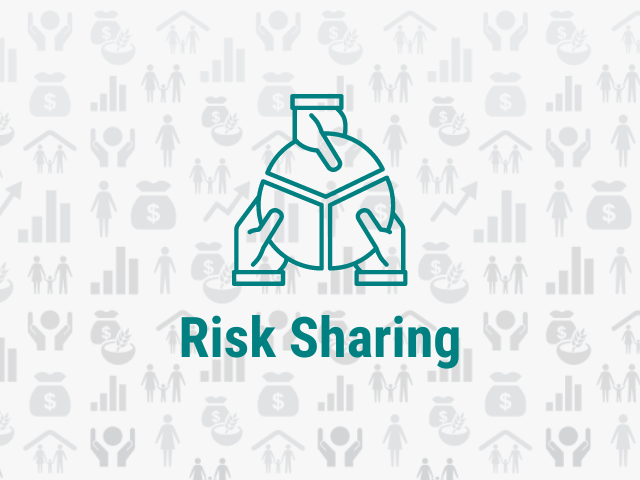A journey towards effective risk-sharing: Risk-sharing Framework Simulation Outcome Report
 A journey towards effective risk-sharing: Risk-sharing Framework Simulation Outcome Report
A journey towards effective risk-sharing: Risk-sharing Framework Simulation Outcome Report
In most humanitarian contexts, delivery of assistance comprises inherent risks at many levels. Organisations use risk management approaches borrowed from the commercial sector to address the risks they face and ensure they can still deliver assistance. However, this approach is proving increasingly challenging, inappropriate to context, and new approaches are needed. One such opportunity identified by several Grand Bargain Signatories was to look differently at risk-sharing and see it not just in the commercial sense towards a client base, but as a pre-agreed division of risk between organizations where each is necessary to the collective objective, requiring a reasonable sharing of the burden of preventative measures and reasonable sharing of responsibility.
The Grand Bargain’s Risk-sharing Platform developed the Risk-sharing Framework to address the gap between analysis and delivery, creating a set of foundational principles and guiding questions that organisations may use and adapt to different contexts, working towards risk-sharing outcomes.
Grand Bargain 3.0 urged Signatories to use the framework to pursue risk-sharing pilots, noting that this was a cross cutting issue that could help unlock outcomes in the two key focus areas for the Grand Bargain. InterAction, ICRC and the Netherlands MFA, in partnership, sought to develop guidance on how organisations could adopt this approach. Through a tabletop simulation, in which participating organisations could experience what it might look like in a test environment, lessons were identified and proposals for action were developed prior to taking their learning into real-world pilots.
The simulation involved 24 participants and three facilitators from a wide variety of stakeholders who were assigned roles as a fictional back donor, intermediary donor, or implementing organizations, all working in the fictional Republic of Carana. The simulation used a deteriorating humanitarian situation as the backdrop for back donors, a fictional UN agency operating as the intermediary donor and several direct implementing organisations to prepare to work together in a ‘delivery chain of assistance’ as part of a generic pooled fund that would fund a humanitarian response. Participants were led through multiple scenarios, using the framework to create a risk-sharing action plan, testing how plans stood up against common risk incidents. The outcome report outlines key takeaways and findings from the simulation for actors seeking to utilise the Risk-sharing Framework within their own organisation.
